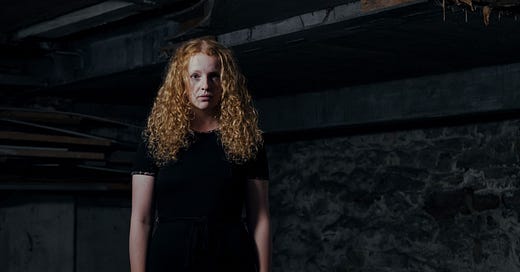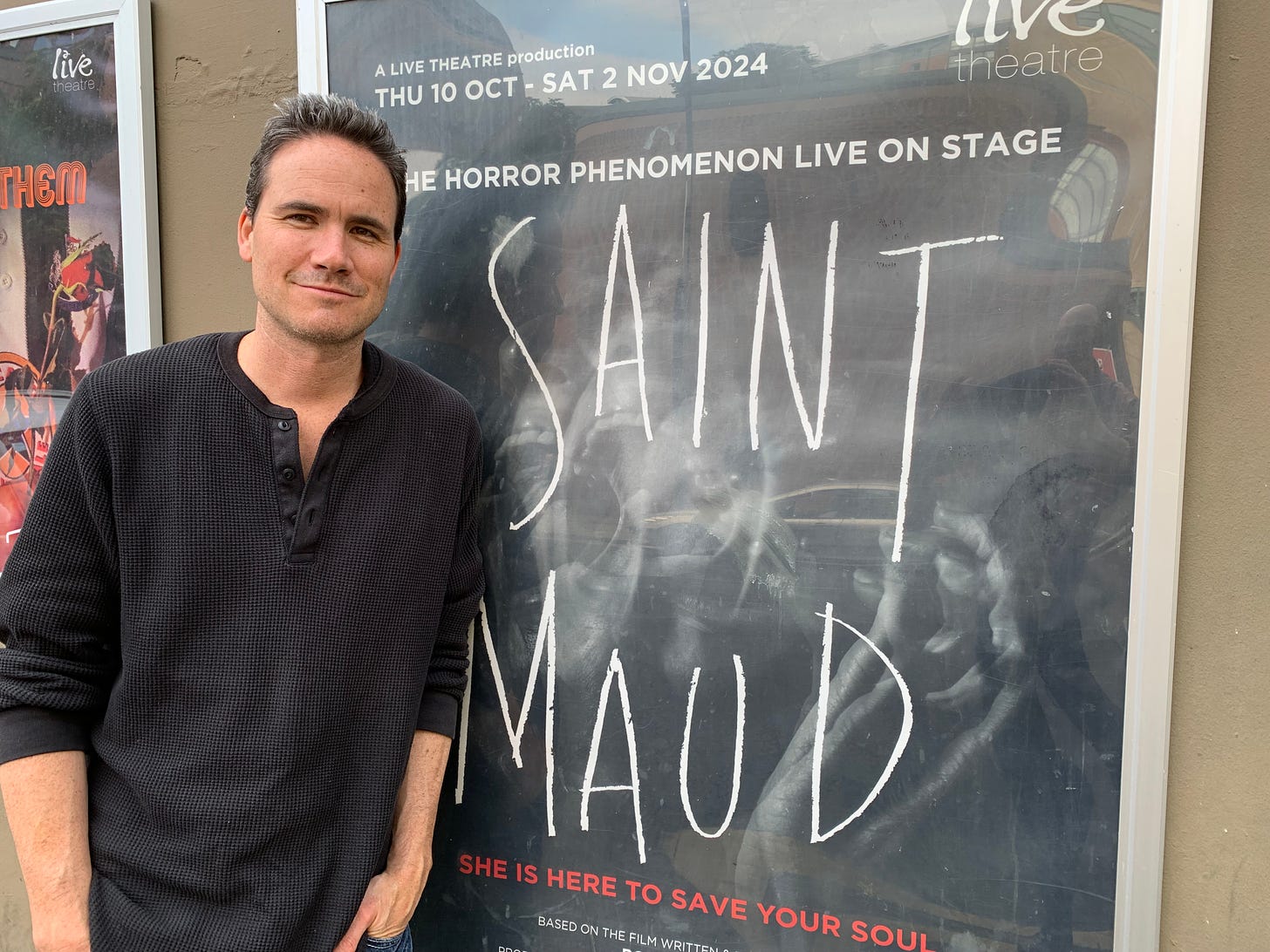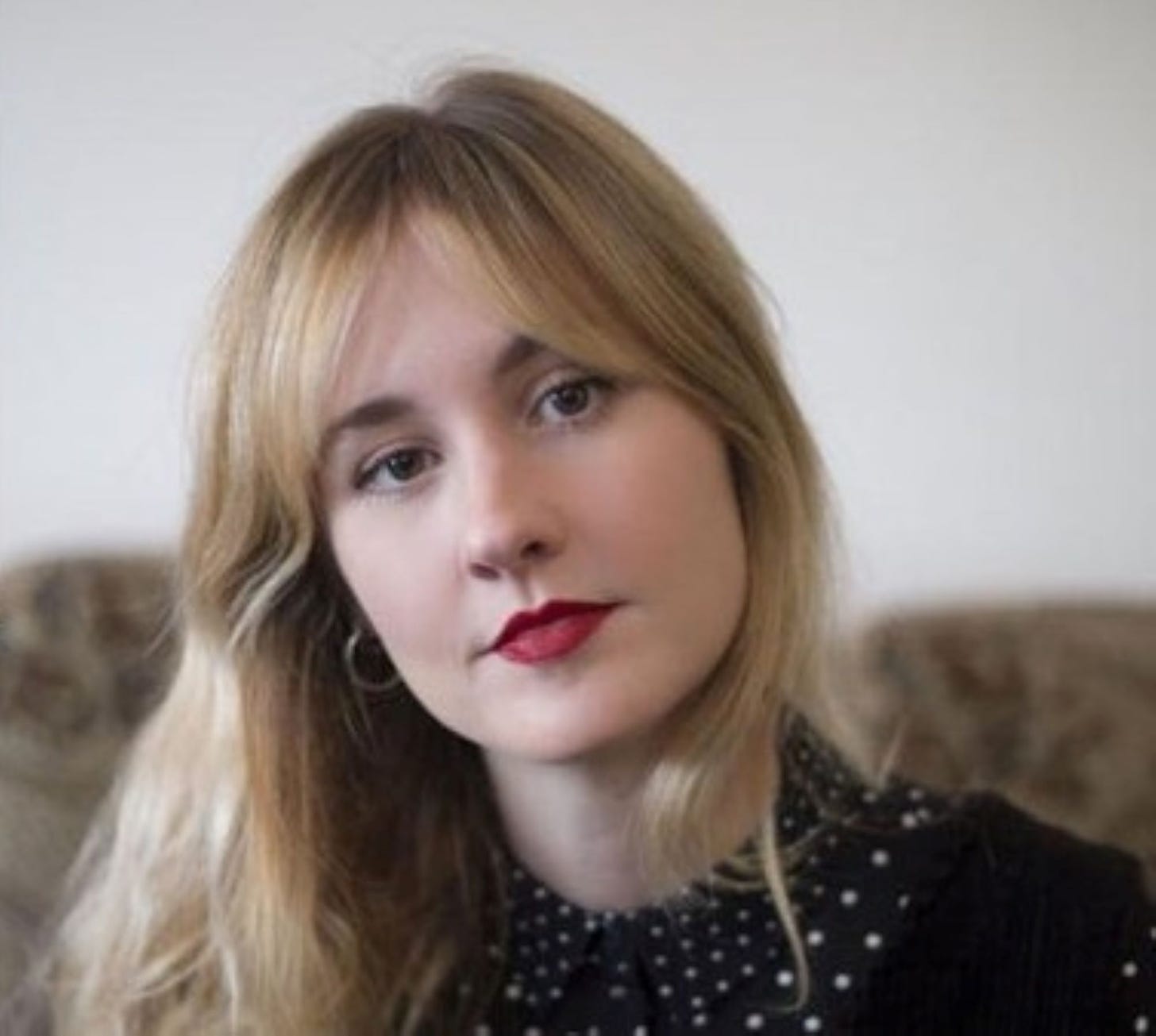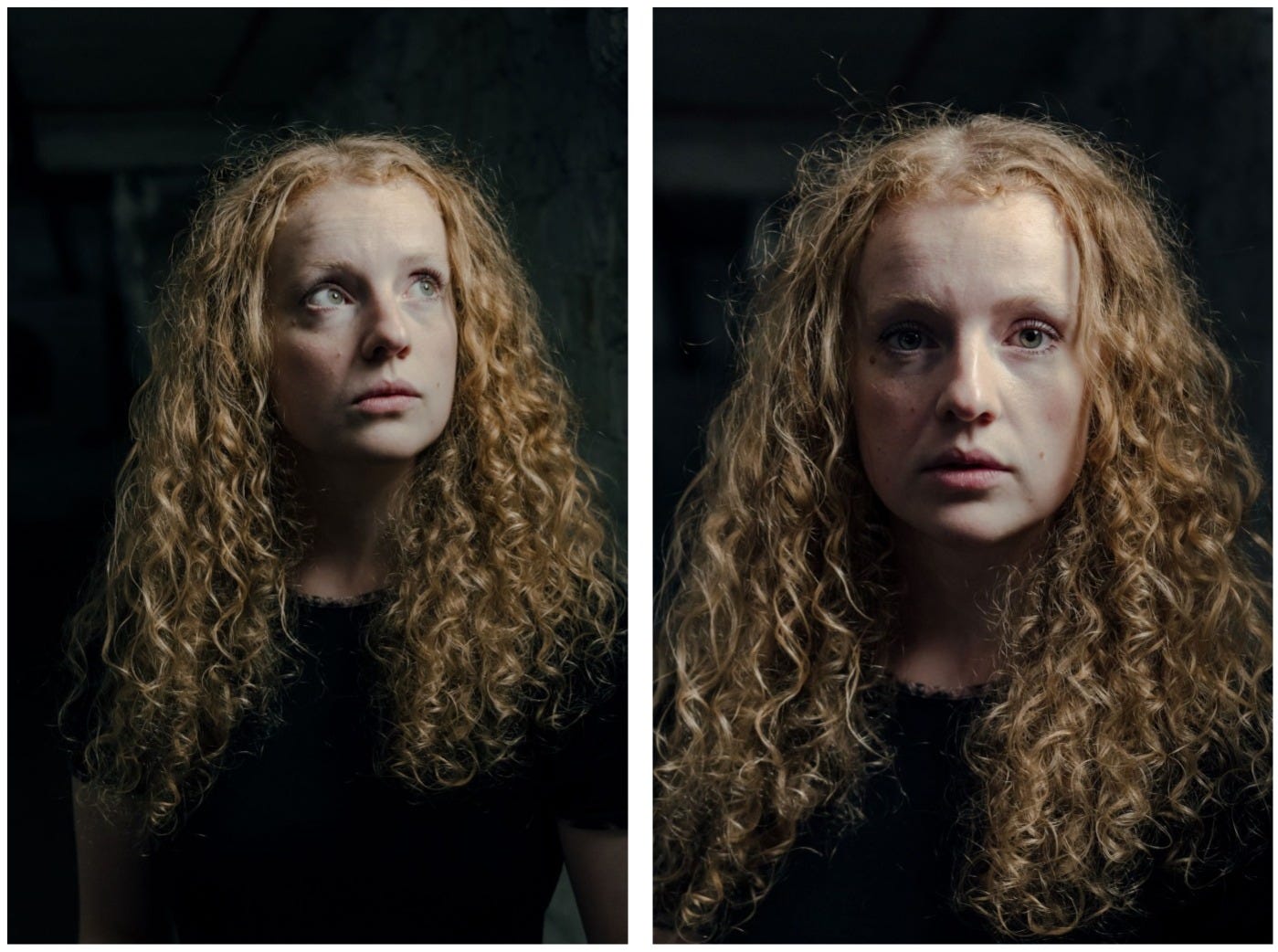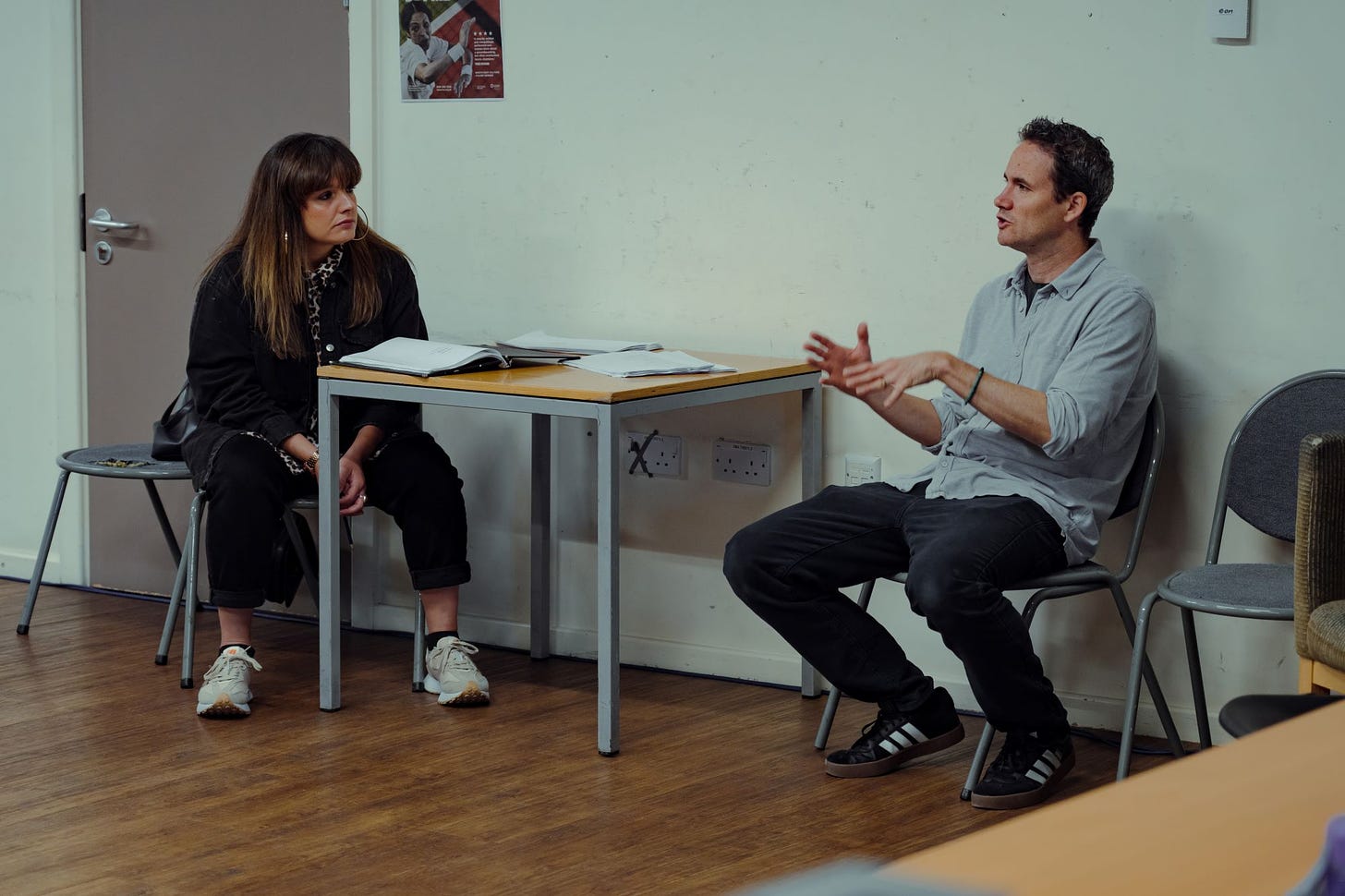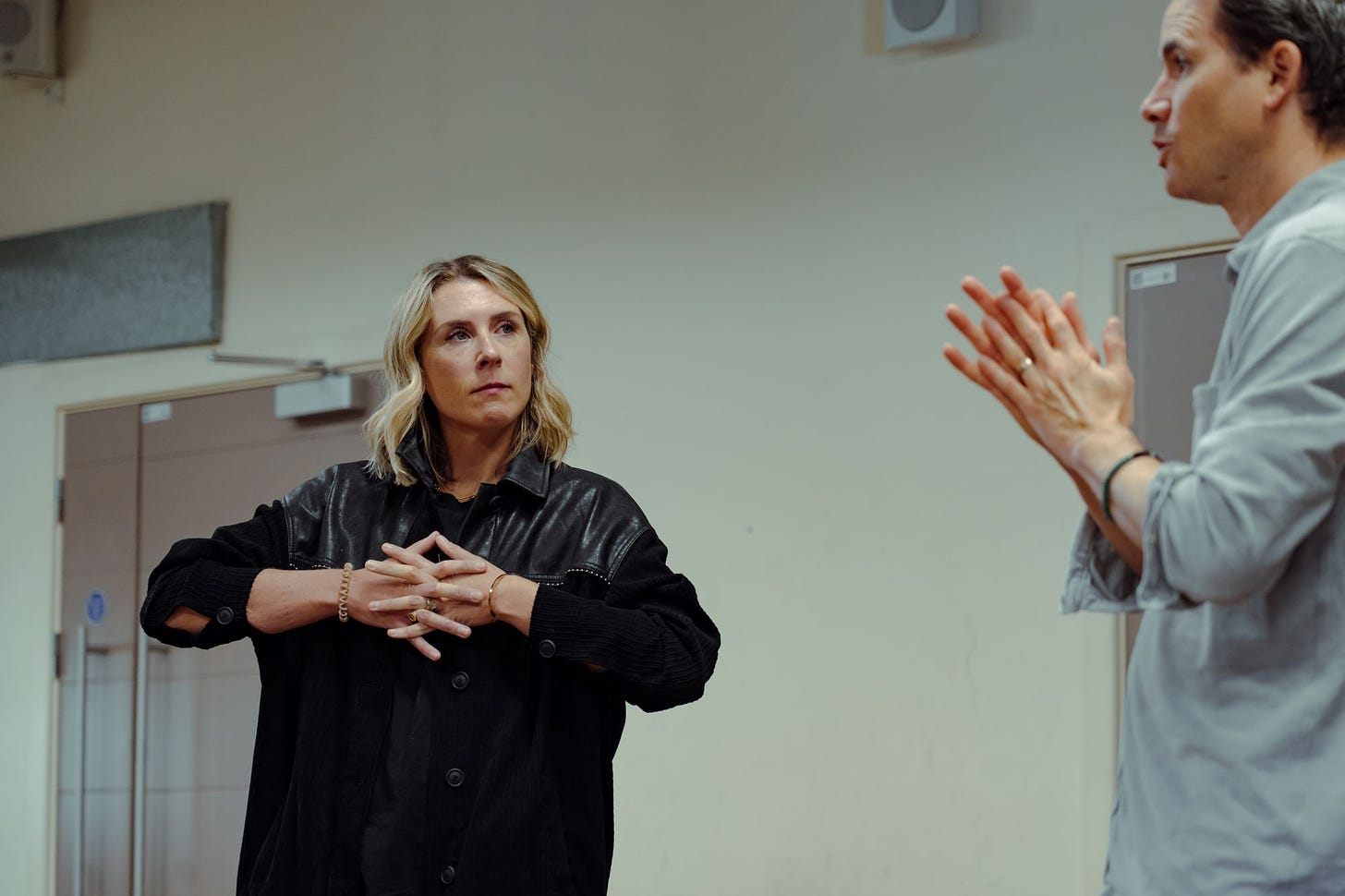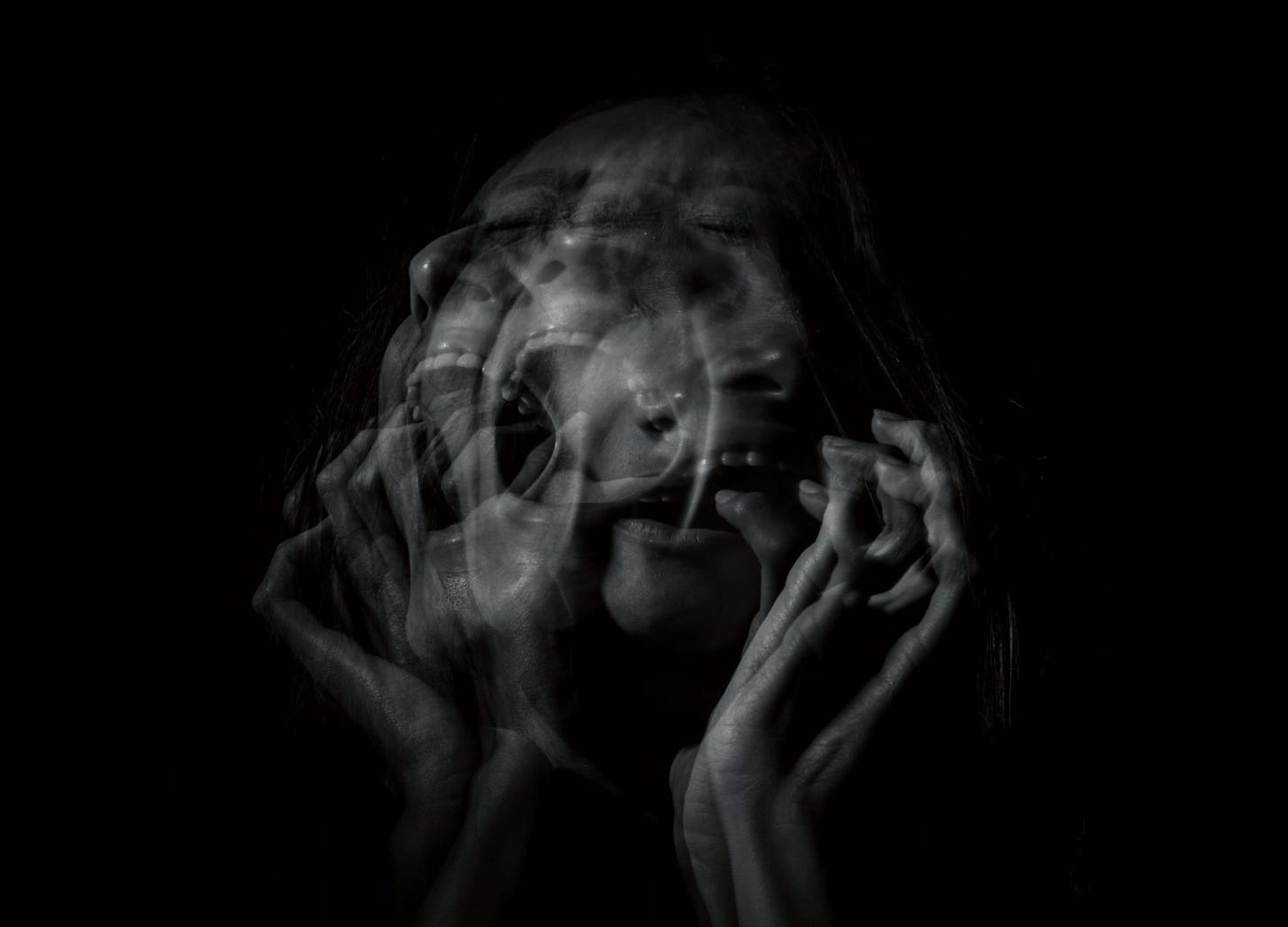Saint Maud set to unsettle
Something gripping for autumn is Saint Maud. Director Jack McNamara and writer Jessica Andrews shared their thoughts with David Whetstone.
Rehearsals have begun at Live Theatre for Saint Maud, an eagerly awaited autumn attraction loaded with ‘firsts’ and billed as “the horror phenomenon live on stage”.
The tense tale of a terminally ill dancer (Amanda) and her obsessively devout Roman Catholic nurse (Maud) began with Rose Glass’s feature film debut, premiered at the Toronto International Film Festival in 2019 and released the following year.
Critics, in their appreciation, often reached for the word ‘unsettling’, which some might call an understatement. It reaches into very dark corners indeed. Mark Kermode, a big fan, said Maud’s world “will haunt you long after the credits have rolled”.
The film won a clutch of awards and put the name of the young British film-maker in lights.
Now comes the first play version of Saint Maud, directed by Live artistic director Jack McNamara and with a script by Jessica Andrews, the Sunderland-born novelist’s first venture into writing for theatre.
Ahead of rehearsals, Jack, who moved to Newcastle in 2021, said: “I think the reason it set off theatrical mechanisms in my head is because it’s a bit of a chamber piece and it’s about relationships.
“It’s not about gore or completely outrageous. In an almost socio-realist sense it’s about people and that’s always struck me as a really exciting way to do horror.
“What puts me off a lot of horror is that it’s so overdone.
“So I think the film lived in my head. Coming to Live, it wasn’t the first thing in my mind to pursue but over time, and coming to realise that sense of event you can get here, I saw it as something that could make this place feel electrifying.”
Read more: Finding love, life and laughs in the Geordie apocalypse
Read more: Preview - Durham Book Festival
Step number one was to contact Rose Glass and pitch his idea. Gratifyingly, she said yes – a coup by any measure.
“When you get someone like that saying yes, you don’t sit down going, ‘Now, shall we do it?’ You just get on with it. It energises you.”
Jack’s mind then turned to who could produce a script and Jessica’s name sprang to mind.
She, too, has garnered plaudits for her novels Saltwater and Milk Teeth, drawing on her experience as a young working class woman growing up in the North East, and the pair had worked together briefly.
As Jack remembered: “I spent a few days with her, just poking Saltwater for what its theatrical potential might be.
“We didn’t quite come to a solution because it’s very fragmented and non-dramatic in a way. But her command of language is amazing and the interest she has in terms of female experience and the body and class, all these quite complex things, just chimed with Maud.
“She had to take a bit of a punt because she hadn’t written a play before and we’re credited as co-writers because I’m leading a bit on the structure. But I describe it as Jessica’s play. She’s the voice of it, the one getting deep into the characters and situation.”
Speaking on the phone from County Durham, although she now spends much of her time in Bristol and London, Jessica recalled that her concerns as a writer with those of Rose Glass as film-maker “felt like an exciting fit”.
The film, which she had enjoyed, made for tense viewing, she agreed.
“It’s got a real simmering horror to it. But I think the film subverts the horror genre in quite an interesting way. It feels to me like it uses classic tropes but doesn’t take them where you quite expect and that was something that appealed to me.”
Although you suspect they’d get along, the pair have never met in person.
“Through the film we’ve been in contact a little bit but I think it’s important for the play to be its own thing,” said Jessica.
“I think it’s important to honour Rose’s ideas but keep them separate at the same time.”
She and Jack had agreed that the play should be faithful, at least loosely, to the plot of the film.
“But I framed it, in my thinking, around the character of Maud. It was about getting under her skin and trying to work out what is it that makes her the way she is.
“What kind of back story can we afford to give her on stage? In the film there’s not much room for it. So it started with Maud, trying to find my way into her because she’s a character that I haven’t created.
“I guess that helped to determine which scenes were important in the play and how they correspond to the film. But it’s also about giving yourself creative licence to make things work in another medium.
“As it’s an adaptation I had to find my own way into it.”
As a happy coincidence, Jessica, with a view to writing something, had been reflecting on her own relationship to Catholicism when Jack came to her with Saint Maud.
She said her family is rooted in Irish Catholicism and she went to a Catholic school.
“My grandad was very religious and raised by nuns and priests in care for a time. I think if you’ve grown up Catholic it’s very much in your psychology. There are things I do and say sometimes because I’ve been brought up with this belief system, for better or worse.
“Maud turns to Catholicism and things become very extreme.
“There is a kind of glamour that elevates the mundane in a way that can feel quite appealing if your day-to-day reality is pretty miserable.
“Pushing at that, and thinking about her relationship to place or family, I was looking at what draws Maud to Catholicism. How does that connect with being a young woman and living in the North?”
Jessica said there was much discussion about the boundary between fantasy and reality.
“We asked a lot of questions, like what are the ethics of putting this story on stage? I mean, one reading of the film is that Maud’s having a mental breakdown.
“It felt important to get that right. I think coming from a Catholic background myself, I was keen for it not to feel voyeuristic or to trivialise the religious aspects by using them as a way of showing someone detached from reality.”
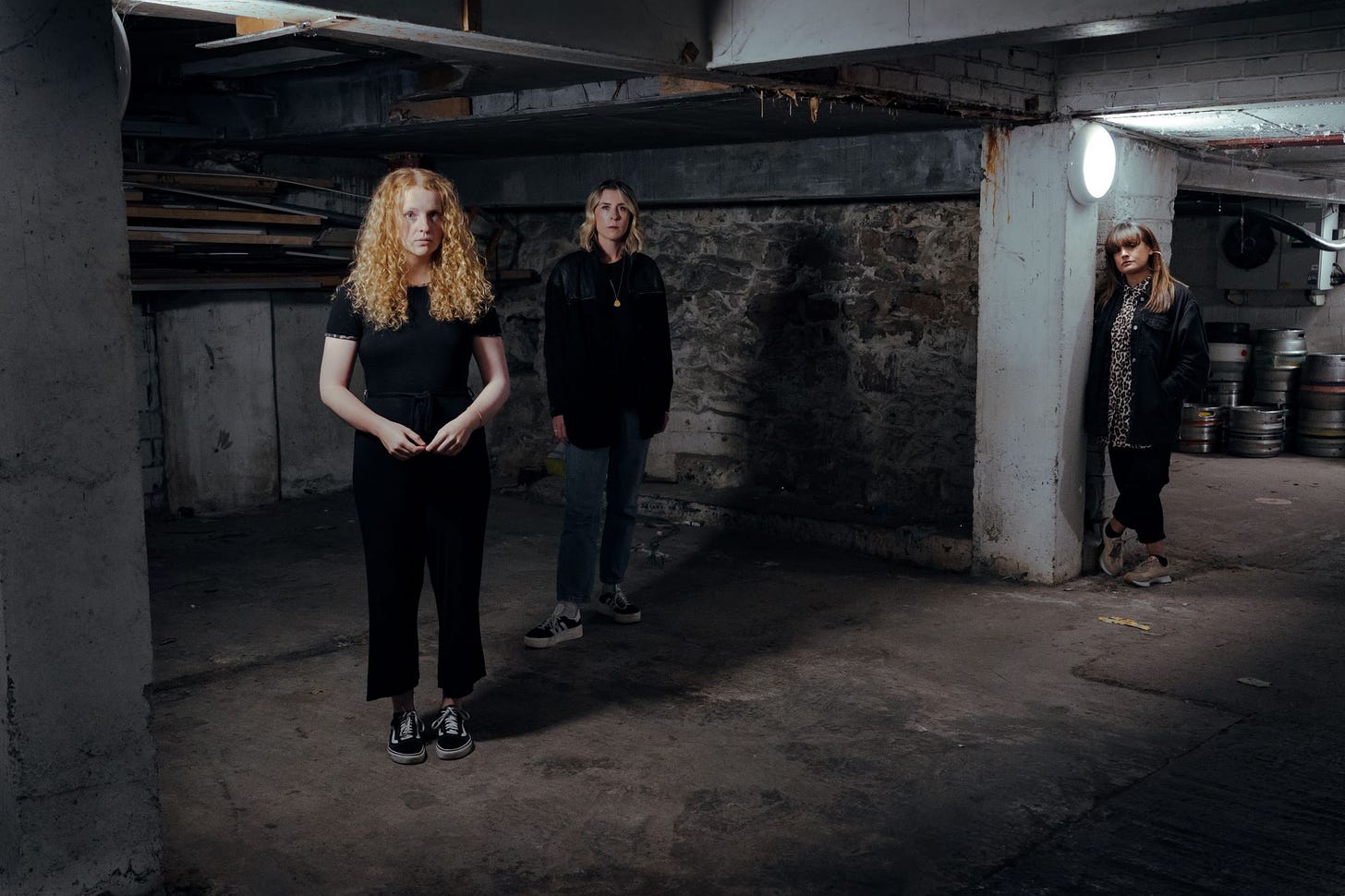
Jessica said the process had been exciting. “Working with such rich pre-existing material has encouraged me to be a little darker and push my thoughts along avenues they might not otherwise have gone down.”
Both Jack and Jessica are delighted with the assembled cast of three.
Brogan Gilbert, originally from Wallsend, is playing Maud while fellow North East actor Dani Arlington is cast as Amanda. The role should hold no fears for Dani who recently covered for Judy Comer in the demanding one-woman play Prima Facie and was loudly applauded when she had to take over the role of barrister Tessa Ensler on Broadway.
The third character, Carol, a composite of two of the film’s characters, is to be played by Live Theatre newcomer Neshla Caplan.
And the music will come courtesy of composer and performer Gazelle Twin (aka Elizabeth Bernholz).
“Always on my dream team of people to work with one day,” enthused Jack.
“She did a gig at The Glasshouse last year and I pinged her a message saying, ‘I’m sure you’ll say no but do you fancy a coffee and I’ll tell you my crazy idea’.
“We talked and our visions matched and she was like, ‘Let’s do it’. She’s got a busy year going all over the world with her music, but we’ve managed to find some time and she’s really inspired by the religious angle.
“She’s working with church organs at the moment and is very interested in hymns. She’s bringing that element in. It’s going to be terrifying church music.”
Tickets for Saint Maud, which runs from October 10 to November 2, can be bought from the Live Theatre website or call the box office on 0191 232 1232.


